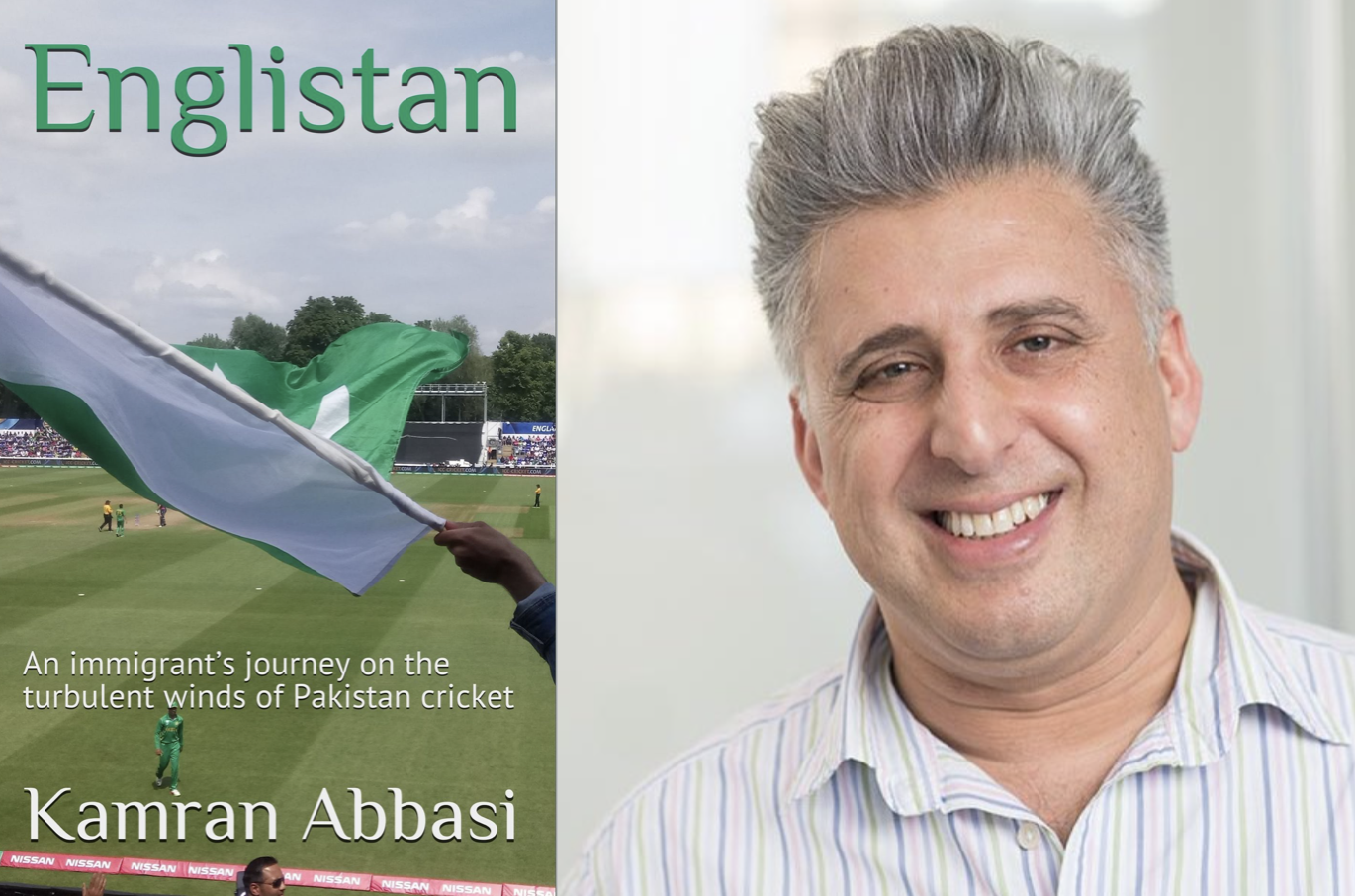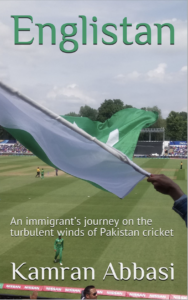
 John Illman reviews Englistan: An immigrant’s journey on the turbulent winds of Pakistani cricket by Kamran Abbasi. Jadoo Books
John Illman reviews Englistan: An immigrant’s journey on the turbulent winds of Pakistani cricket by Kamran Abbasi. Jadoo Books
I wouldn’t like to guess how many different publications I’ve written for — probably a 100 or more — from The Economist to Tit-Bits (now long gone); from the Sunday Telegraph to Cosmopolitan; and from the Journal of the National Cancer Institute to the Sunday Mirror.
Thus I have become — an essential prerequisite for a freelance — a student of house-style. But nothing I have done in terms of jumping in and out of different journalistic and writing style-beds compares with Kamran Abassi.
In his day job he is editor-in-chief of the British Medical Journal. (As a regular BMJ contributor I must declare an interest here.) In his other writing life, he is an authority on cricket, the first British Asian columnist for Wisden, the cricketing bible. He writes about cricket with an unrestrained passion — sometimes joyful, sometimes disenchanted, sometimes disillusioned, but always, in spite of everything, hopeful.
Passion
This is a world far removed from the BMJ. As an MJA member you may have no interest in cricket, but I hope that passion sways you in the same way that it sways me. This is as much a book about passion as it is about cricket. Witness the very first paragraph:
“1982 an English summer. The world outside stands still. My life is a battle between my adopted country and my homeland. The deciding match of an international series carries the hopes and dreams of a 14-year-old immigrant. In my world of 1982, my religiously relaxed but culturally orthodox world, there are no girls or parties. There are books and and music, books and music that liberate my mind, but above any book and any music is cricket. Cricket its in its own very special place.”

BMJ Editor and author, Kamran Abassi
This is also a book about racism in cricket and. more specifically, racism at Yorkshire County Cricket Club (YCCC). The once iconic club — a record 33 championship titles — suffered a reported £2.2 million loss after spin bowler Azeem Rafiq claimed that it was institutionally racist.
Racism
Kamran is well-qualified to write about racism in Yorkshire. Born in Lahore, he was brought up in the quintessential Yorkshire town of Rotherham which even has its own cricket league. He shows how the racism scandal that has been in the headlines in March and April, 2023, have been simmering, if not burning fiercely, for decades.
He recalls: “Growing up in Yorkshire in the 1970s and 1980s was a unique cricketing experience for a migrant. You played cricket in your own leagues …You wouldn’t think about playing for a non-Asian team and the other teams wouldn’t try to recruit you, however good you were. You were cricketers of the shadows.”
History
In fairness to YCCC, it did not only mitigate against migrants. For most of its history it insisted that its players must be born within its boundaries. The legendary, Indian batter Sachin Tendulkar became the first Asian to play for YCCC in 1992. But Kamran writes: “Yorkshire are still to convince us that their anti-racism stance is more than a cosmetic exercise.
His book, however, is also about hope and aspiration. He dreams of Pakistan being the best in the world despite their spectacular inconsistency. His unwavering support reminded me of our elder son’s devoted following of West Ham United, whose up and down frolics, I always think, invites the nickname Yo-Yo United.
Astonishing changes
Kamran also covers the astonishing changes in fortune of Pakistani cricket from his boyhood until the present time — from the infamous scandals to the game’s power to unite. He says: ‘’Cricket, like any pastime taken in isolation, is meaningless. For sport is only relevant to us when we attach emotions to it. A football fan lives the agony and ecstasy of every goal. A boxing bout only excites us when we side with one of the fighters. International cricket is this and something more. It is intertwined with history and national identity.
“Cricket is us and we are cricket — and perhaps it is more this way for Pakistan than any other country.” But he also observes: “In 50 years of cricket, of being an immigrant, of living in hope, of the rivalry that defined my life, everything changed and nothing changed.”



Recent Comments